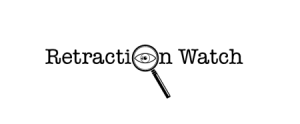 Did you miss some of this week’s posts? Here they all are, in one handy roundup: Continue reading The RW week in review: Doing the right thing, two journals’ first retractions
Did you miss some of this week’s posts? Here they all are, in one handy roundup: Continue reading The RW week in review: Doing the right thing, two journals’ first retractions
Weekend reads: Six-figure publishing bonuses; Google’s scientific influence campaign
 The week at Retraction Watch featured the story of a group devastated to learn that they had used the wrong mice in their experiments, and the tale of how keycard swipe records gave away faked data. Here’s what was happening elsewhere: Continue reading Weekend reads: Six-figure publishing bonuses; Google’s scientific influence campaign
The week at Retraction Watch featured the story of a group devastated to learn that they had used the wrong mice in their experiments, and the tale of how keycard swipe records gave away faked data. Here’s what was happening elsewhere: Continue reading Weekend reads: Six-figure publishing bonuses; Google’s scientific influence campaign
Volunteer researcher faked weeks’ worth of data
 A volunteer researcher at Florida Atlantic University fabricated the results of mouse experiments over a 14-day period in June, 2016, according to a new finding issued by the U.S Office of Research Integrity (ORI).
A volunteer researcher at Florida Atlantic University fabricated the results of mouse experiments over a 14-day period in June, 2016, according to a new finding issued by the U.S Office of Research Integrity (ORI).
According to the ORI, Alec Mirchandani made up the results of behavioral experiments to make it seem as if he had done the work, and falsified animal transfer logs, which affected research supported by the National Institute of Mental Health.
More specifically, the ORI determined that Mirchandani had “knowingly and intentionally:”
Continue reading Volunteer researcher faked weeks’ worth of data
Want to appeal a journal’s rejection? Sure — that’ll be $700
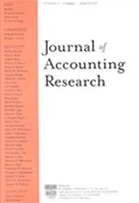 Different journals follow different editorial policies — but we’ve never seen any charge money to authors who want to appeal an editorial decision. Until now.
Different journals follow different editorial policies — but we’ve never seen any charge money to authors who want to appeal an editorial decision. Until now.
Recently, a criminal justice researcher sent us links to multiple journals that charge appeal fees. For instance, the Journal of Accounting Research says authors must pay $500 for each submission — and another $500 if they want the journal to reconsider its decision to reject the paper.
Under “Appeals,” the journal writes:
Continue reading Want to appeal a journal’s rejection? Sure — that’ll be $700
Leibniz Prize belatedly awarded to scientist cleared of misconduct
![]() Just before the March ceremony to bestow the coveted Leibniz Prize, the Deutsche Forschungsgemeinschaft (DFG, German Research Foundation) received some disturbing allegations. An anonymous tipster accused one of the 10 scientists slotted to receive the award, materials scientist Britta Nestler, of misconduct. So the DFG held the ceremony on March 15, but suspended Nestler’s award.
Just before the March ceremony to bestow the coveted Leibniz Prize, the Deutsche Forschungsgemeinschaft (DFG, German Research Foundation) received some disturbing allegations. An anonymous tipster accused one of the 10 scientists slotted to receive the award, materials scientist Britta Nestler, of misconduct. So the DFG held the ceremony on March 15, but suspended Nestler’s award.
Four months later, Nestler now has her Leibniz, along with the €2.5 million in prize money. This week, the DFG — which awards the Leibniz — announced that it had given Nestler her prize on July 4, during its annual meeting, after determining the accusations were without merit.
Secretary General of the DFG and Chair of the Committee of Inquiry on Allegations of Scientific Misconduct Dorothee Dzwonnek said in a statement:
Continue reading Leibniz Prize belatedly awarded to scientist cleared of misconduct
Authors say patient threatened legal action after being subject of scholarly paper
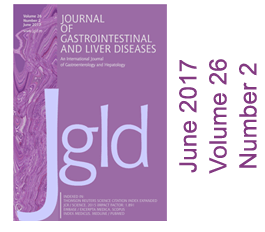 A patient appears to have had a change of heart about being featured in a case report.
A patient appears to have had a change of heart about being featured in a case report.
The patient cannot be identified in the paper published in Journal of Gastrointestinal and Liver Diseases. However, according to the retraction notice, she threatened to sue if the authors did not withdraw it. After receiving the threat, the paper’s corresponding author, Mariano Sica, told us that the authors immediately asked the journal to retract the paper.
We’ve written about similar cases where patients do not provide informed consent or withdraw it, but in this case we haven’t seen the threat ourselves.
We asked Sica if we could see the legal threat, and he said he couldn’t share it, explaining: Continue reading Authors say patient threatened legal action after being subject of scholarly paper
Nature Chemistry issues its first retraction
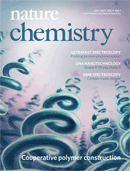 For the first time in its eight-year history, Nature Chemistry has retracted a paper, citing “data integrity issues.”
For the first time in its eight-year history, Nature Chemistry has retracted a paper, citing “data integrity issues.”
The 2010 paper, which explored how various iron-based molecules interact with water and ethanol, was withdrawn after the authors uncovered possible duplication in two images.
According to the retraction notice, the authors could not provide the raw data to confirm their findings and could not reproduce the figures because the experimental set-up had been dismantled. The authors subsequently requested the paper be retracted because the issues undermined “our full confidence in the integrity of the study.”
Here’s the retraction notice for “Charge transfer to solvent identified using dark channel fluorescence-yield L-edge spectroscopy”: Continue reading Nature Chemistry issues its first retraction
Nature retracts paper by stem cell scientist appealing her dismissal

A once-rising star in stem cell biology — who recently lost both her job and a sizable grant — has had a fourth paper retracted.
The notice — issued by Nature for a 2006 letter — cites duplicated images, and a lack of raw data to verify the findings. First author Susana Gonzalez — who was dismissed from her position at the National Center for Cardiovascular Research (CNIC) in Spain last February over allegations of misconduct — couldn’t be reached by the journal.
Here’s the full text of the retraction notice:
Continue reading Nature retracts paper by stem cell scientist appealing her dismissal
“We were devastated:” Authors retract paper after realizing they had used the wrong mice
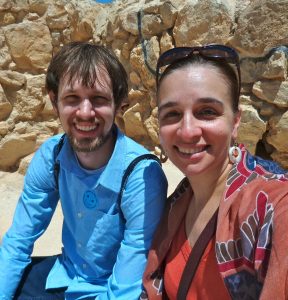
Longtime readers of Retraction Watch may recall a 2011 post about a research team that retracted a paper after realizing that they had ordered the wrong mice. Maureen Gannon and Raymond Pasek of Vanderbilt University contacted us earlier this week to alert us to a similar case: Their retraction, earlier this month, of a 2016 paper from American Journal of Physiology – Endocrinology and Metabolism after discovering that “a colleague from another lab had mistakenly supplied us with the wrong transgenic mouse line.”
“We strongly believe that sharing this example will encourage other researchers to do the right thing when a mistake is discovered and promote academic integrity,” they wrote. So we asked them to answer a few questions about their experience with “Connective tissue growth factor is critical for proper β-cell function and pregnancy-induced β-cell hyperplasia in adult mice,” a paper that has been cited twice, according to Clarivate Analytics’ Web of Science.
Retraction Watch: How, and when, did you become aware of the error? Continue reading “We were devastated:” Authors retract paper after realizing they had used the wrong mice
Author “shocked” after top math journal retracts paper
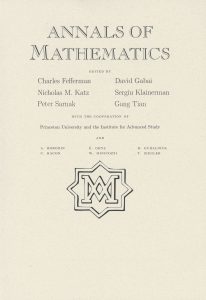 One of the world’s most prestigious mathematics journals has issued what appears to be its first retraction.
One of the world’s most prestigious mathematics journals has issued what appears to be its first retraction.
The Annals of Mathematics recently withdrew a 2001 paper exploring the properties of certain symmetrical spaces.
What prompted this retraction? And why did it occur 16 years after the paper was published? Continue reading Author “shocked” after top math journal retracts paper